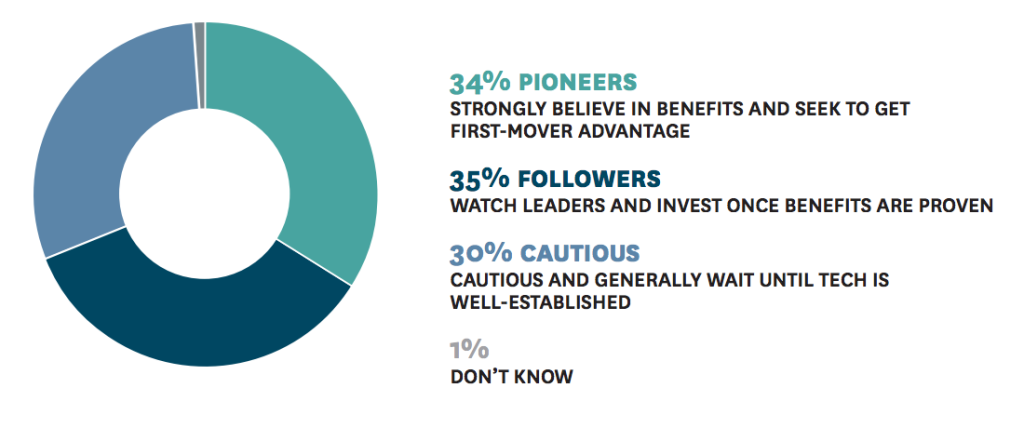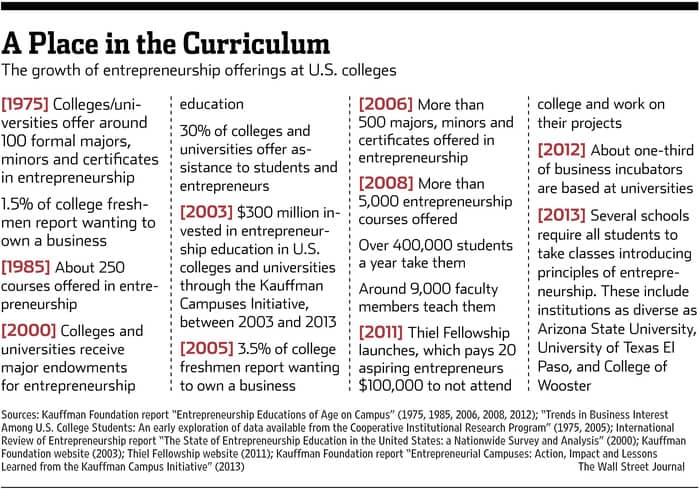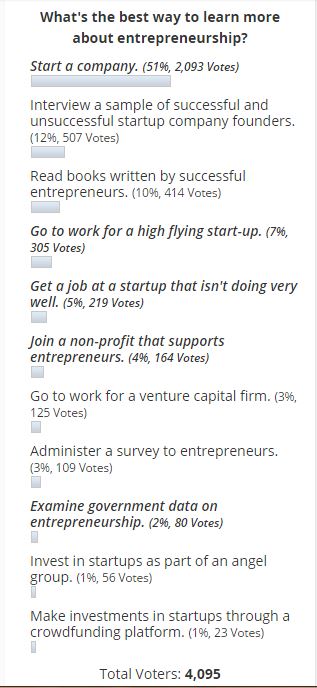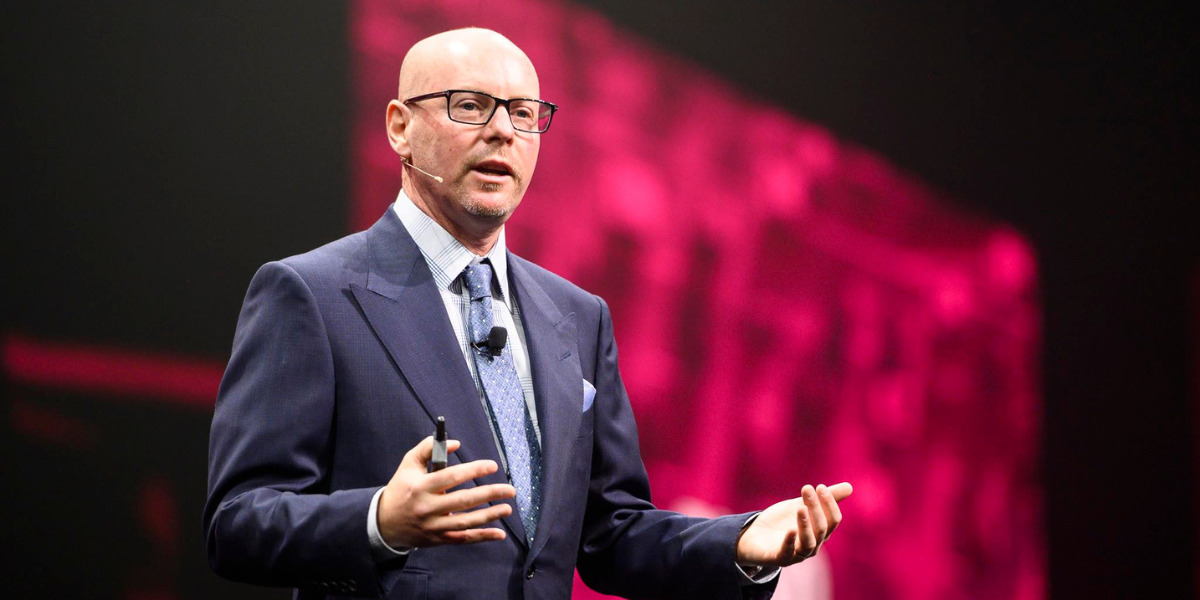What’s the difference between entrepreneurs and those who dream about being an entrepreneur?
What is it that separates 13% of the population that call themselves entrepreneurs?
Is there some sort of genetic factor to it all? Some sort of inherent quality or personality trait that entrepreneurs possess that other people don’t?
In all honesty, there is none.
In our experience one of the most striking things about meeting great entrepreneurs like Seth Godin, or Arianna Huffington is that you realize how completely normal they are.
The only difference between entrepreneurs and those who dream about becoming one is simple: they go ahead and do it.
Now it’s okay to be unsure about starting a business, becoming an entrepreneur. It’s a risky proposition. But at what point is being unsure holding you back from doing something great?
“If you are not willing to risk the unusual, you will have to settle for the ordinary.” – Jim Rohn.
So let’s break down the components of what makes people unsure. Let’s do away with the excuses and take a good hard look at the startup fallacies people tell themselves every day.
I’m not the first
Here we stumble upon the most common of the startup fallacies.
Echoing the words that every mature woman says to their insecurity-riddled-boyfriends, “it doesn’t matter that you’re not the first.”
Putting the bruised ego aside, many would be entrepreneurs are put off by the fact that they don’t have, what they would consider, an original idea, product, or service. That just because they missed out on being the first to market they’re automatically doomed to fail.
The basis of first-mover advantage has a common sense like simplicity behind it. By being the first to enter a new market, a la disruptive innovation or blue ocean strategy, your business will gain an advantage over any actual or potential competitors. Simply by being the only product or service in your niche available you’ll be able to establish a clear cut dominance.
The logic is that you don’t have to be the biggest kid on the block with a lemonade stand, you’re the only kid on the block with a lemonade stand. The market starts and ends with you.
A report released by Verizon and Harvard Business Review appears to verify this. It found that those who considered themselves pioneers experienced 30% more growth, twice that of followers, and more than three times that of the cautious.
But here’s the thing. Being the first to market can also mean being the first to fail.
Irony abounds when the original authors who popularized the phrase, Stanford Business School professors David Montgomery and Marvin Lieberman, would go on to write a retrospective paper 10 years later disproving first-mover advantage. For every study out there that proves first-mover advantage exists, there is a study proving that it does not.
The truth is while there are obvious advantages to being the first, it doesn’t actually matter all that much in the long run. It’s not about being the first, it’s about being the best.
In fact there are many advantages to being a follower as opposed to being a pioneer. The most prominent advantange being that you have all the benefit of hindsight. You have the ability to avoid all the mistakes the first made, and improve in all the areas they failed in. You can do it better.
Coca-Cola was the first cola producer, and yet Pepsi exists. Friendster and MySpace existed way before Facebook. Google’s founders were discouraged from developing their idea because ‘search’ already existed. Some readers will even remember a time when the iPod was scoffed at because the Zune already existed.
Echoing the sentiment of all wise, and rightly exasperated, wives and girlfriends out there. It doesn’t matter if you’re not the first, as long as you’re the last.
I didn’t go to school
This is one of the most persistent startup fallacies I have ever come across. Especially with the rise of colleges and universities offering degrees offering degrees in entrepreneurship many are left wondering whether or not college is worth all the time and money.
Now I won’t go into the theological debate about the value of a higher education because there are much smarter people out there who can answer that question for you, depending on what side of the fence you fall on. Although full disclaimer, I did spend five years in academia before becoming an entrepreneur myself.
Besides learning first-hand the physics of fluid dynamics with keg stands, contrary to what some people might think, entrepreneurs actually have much to gain from undertaking higher education.
Whether its taking advantage of the opportunities to network, a healthy environment to practice financial independence, or the absolute wealth of resources around you. I’m a firm believer that having a degree is better than not having one. At the very least the experience of college is a valuable one.
However a degree isn’t always necessary.
Fun fact: a third of the world’s billionaires never graduated from college.
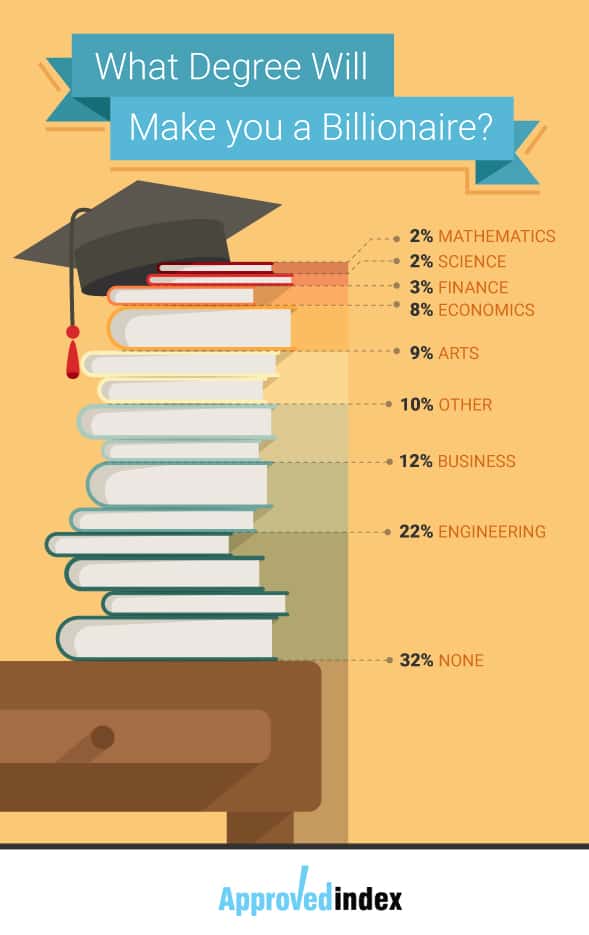
What often gets lost in translation though is that Zuckerberg never thought he would have dropped out of college to pursue Facebook. Bill Gates himself believes that the world needs more college graduates. Steve Jobs dropped out of college purely because he felt his degree was too restrictive and wanted to drop in on the classes he thought were more interesting. Richard Branson never completed high school and yet he believes that universities play an absolutely invaluable role in the development of the entrepreneurial spirit.
What you should be taking from these examples isn’t whether or not you should take the path towards higher education. Instead this should open your eyes to the fact that you don’t need a piece of paper to define your intelligence.
What you do need is an absolute thirst for knowledge.
Academia isn’t the only institution for education. As long as you’re curious and always learning then there’s nothing stopping you from becoming a great entrepreneur.
The question shouldn’t be: “Should I go to college?”
It should be: “Is college the best place for me to learn?”
Listen to what Bill Gates has to say about the power of learning in his 2007 commencement speech at Harvard.
I’m too young
I invite you to remember a time when you were either a child or a teenager and you were hopelessly in love with someone much older than you. Whether it was that crush on that babysitter, or maybe it was even your teacher.
Hold on to that memory for me for a second here.
Do you remember what you said after your friends laughed at you? Remember what you defiantly said back?
“Age is just a number.”
Now I want you to channel that energy again and say it aloud, because we’re going to disprove one of the most fallacious of the startup fallacies.
Steve Mehr is my go-to example for anyone telling me that they think they’re too young to be an entrepreneur. Today he’s a multi-millionaire businessman who’s dabbled in every industry from consumer electronics, to real estate and everything in between.
And it all started when he was 16.
“I started my first business when I was 16 years old, I came across a wholesale catalog and it had a pair of 6 by 9 speakers in it for $90 and I’m like ‘I bet you I could sell these things for a little bit more to the rich kids.’” – Steve Mehr.
While he admits that the journey of an entrepreneur is hard, he also says its best for entrepreneurs to start young. There are fewer commitments and much more freedom to pursue business ideas earlier in life as opposed to later. You can listen to our full interview with him here.
Youth doesn’t necessarily mean inexperience or immaturity, and as a millennial myself I’ll gladly argue the point with anyone who disputes otherwise.
Paul Graham, cofounder of Y-Combinator, advises entrepreneurs to start in their twenties.
Anyone who feels like they’re too inexperienced to start a startup, then the best way to get experience is to just start a startup, because that inexperience is actually the best asset of young entrepreneurs.
Check out this survey conducted by Small Business Trends.
It’s almost because of that naïve passion that pushes young founders to learn quickly from their mistakes and charge forward.
In a way getting a few years experience at a regular job can be detrimental to young entrepreneurs. It has the effect of taming that passion and making you believe that there is a set-in-stone right and wrong way of doing business.
As an entrepreneur’s job is to blaze a trail of change, that could effectively handicap a startup.
There is nothing wrong with being young, and it certainly isn’t something that holds you back.
It’s not the age that matters, it’s the mindset. There is no limit on age when it comes to passion, drive, or the desire to create change.
Millennials are proving to be the true entrepreneurial generation, so don’t start telling me, or anyone else that their age is a game-changing factor.
I know nothing about business
What do you mean by that?
That you didn’t go to business school? That you don’t have an MBA? That you’re not well versed in the realms of stock exchange?
Well my follow-up question to you is this: What’s stopping you from learning?
Out of all the startup fallacies this is the one that makes me want to tear my hair out the most. But I find it’s usually the one that holds people back the most. Justifying that because they don’t have that one piece of knowledge then they can’t start a business.
Like I said earlier, it isn’t about whether or not you have a formal education, it’s about whether or not you’re willing to learn and be educated. Whether you choose to learn through a textbook, or learn by doing is up to you. As long as you’re learning.
I’ll let you in on all you need to know about good business: buy for one, sell for two. Throw in an idea of how to add value to your customer’s lives and you have all you need to start a business.
You don’t necessarily need to know all the ins-and-outs of business, but what you do need is good business sense.
We live in the information age, an unprecedented time in history where information is readily available to anyone that wants it. There really is no excuse as to why you can’t fill in the gaps of your knowledge right this second, and all for free!
Go to the library and start borrowing books about topics you’re interested in.
There is a multitude of websites where you can download free eBooks. Or just go onto Amazon and buy a digital copy today!
Read blogs filled with information and advice, you’re reading one right now on Foundr.
Learn from great entrepreneurs themselves by listening to what they have to say. You can do that right now with the Foundr Podcast.
So I ask again: what’s stopping you from learning?
And don’t start thinking like you need to do all of this alone.
By far the easiest and most valuable way of filling in the gaps of your knowledge is assembling together a great team. Remove the need of you having to be an expert on everything by having actual experts with you.
A report by the Startup Genome Project found that team of founders grow 3.6 times faster than solo founders and are much more likely to succeed. A well-rounded team made up of members with their own areas of expertise is much more likely to succeed than an overworked and overwhelmed individual.
Every commander has an army, every hero has a companion, and every leader has a team. You don’t need to go at this alone and you shouldn’t have to.
I don’t have the perfect plan yet
Let’s put one of these startup fallacies permanently to bed with this very simple, and incredibly true, statement:
There is no such thing as perfect.
Stop trying to aim for perfection because it’ll never come. It’s a crutch that people lean on when they realize they don’t have a leg to stand on.
Some people will wait, and wait, and wait, and continue waiting for the perfect moment that’ll never come. Then they’ll console themselves with the thought that it’s not their fault they never did anything. Telling themselves that it was never meant to be because the stars were never completely in line for them.
Don’t be one of those people.
As Seth Godin says what people are afraid of isn’t risk, it’s uncertainty.
You’re not actually afraid of risk, you’re afraid of the uncertainty of the potential for outcomes you haven’t fallen in love with. The human mind has an impressive ability of overestimating the possibility of failure. It’s very easy to believe that every outcome outside of the one you want is a failed one.
Good risk management is all about learning to be okay with, and planning for, those undesired outcomes.
Funnily enough most serial entrepreneurs don’t view themselves as risk-takers, despite what their spectators might say.
Instead they practice the art of taking calculated risks, by doing so they severely limit the potential for negative outcomes. If a situation should go awry, they are prepared for such a scenario and already have a plan in place to limit their losses. If the outcome isn’t what they expected, then they pivot and work with what they have.
Here’s a great piece of advice from Richard Branson to all entrepreneurs:
“In the end, you have to say, ‘Screw it. Just do it.’” – Richard Branson.
Good entrepreneurs don’t simply wait for the perfect moment. They make the best of what they’ve got.
Great entrepreneurs go about setting the conditions for that perfect moment to happen.
I’ve always liked this piece of advice a friend gave me when I was at a crossroads with my career a few years ago, and I’ll share it with you today:
“Waiting for an opportunity is like waiting for the train. Of course you can miss one and another train will eventually come again, but it’ll come around much later and it’ll a different journey. Can you afford to wait?”
Although I’ve added a little amendment at the end ever since I’ve become an entrepreneur.
“Build the car yourself instead of waiting for the train.”
Conclusion
It’s easy to see why these startup fallacies are so pervasive. After all logical fallacies seem real because of their seemingly logical train of thought. A faulty argument hiding behind a thin veneer of reason.
Every entrepreneur in the world has confronted these startup fallacies at one point or another. The reason they’re entrepreneurs is precisely because they’ve had the courage to confront these startup fallacies and see them for what they are: excuses. Mind traps that fill you with uncertainty and doubt.
So don’t hold yourself back with these startup fallacies and recognise them for what they are.
Have the courage to move forward and become a great entrepreneur!
“The cost of being wrong is less than the cost of doing nothing.” – Seth Godin
Share your thoughts in the comments below and, as always, remember to like and share if you’ve enjoyed this article!

